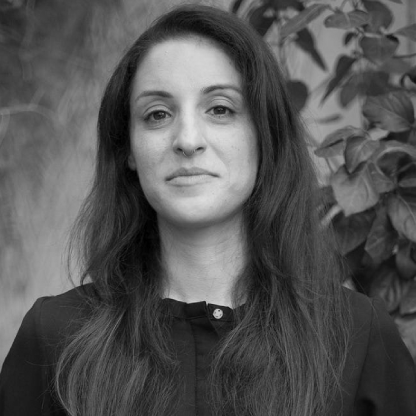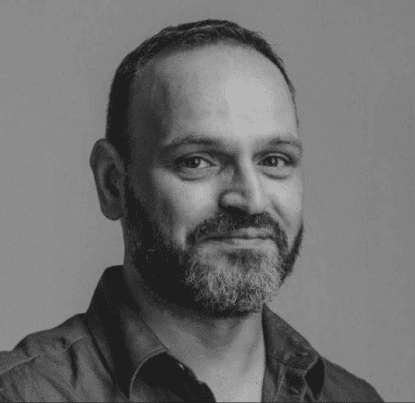Lebanese authorities and powerful individuals, including political, judicial, religious and security figures, are increasingly displaying intolerance towards criticism and are weaponizing Lebanon’s criminal defamation and insult laws to harass, intimidate and silence human rights defenders, activists, journalists and others who criticize them or try to expose their alleged misconduct or corruption. Convictions under these laws can result in up to three years’ imprisonment.
This threat to peaceful dissent will hinder the ability of human rights defenders, journalists, activists and others to operate independently and speak out about important social, economic and rights issues. Public debate is especially critical at this time in Lebanon, a country blighted by economic and political turmoil, where the judiciary is failing to hold to account officials responsible for multiple crises and human rights violations. Here are the answers to five key questions about the right to freedom of expression and the use of repressive defamation laws in Lebanon.
What is defamation? And how is it punished under Lebanese Laws?
Defamation is any expression, written or spoken, communicated to another person, which may result in harming the reputation of a third person or institution. Most states have adopted some form of defamation laws to protect individuals and institutions from unwarranted attacks on their reputation. However, Lebanon’s defamation laws do not comply with the country’s obligations under international human rights law and are commonly used by the authorities and powerful individuals to harass, intimidate and punish individuals who are critical of them.
Lebanese laws, namely the Penal Code, Publications Law and the Military Code of Justice, criminalize defamation and insults, including against public employees, officials, judges, the president, the flag, the army, and foreign states.
There are two types of defamation: slander and libel. The Penal Code defines slander as every attribution that attaches an action to a person or institution which offends their honor or dignity. It defines libel as contempt, profanity or insult that appears in a means of publication and is directed against an individual or institution.
Individuals accused of defamation or insults can be tried in the criminal courts, the Publications Court or the military courts. Convictions under these laws can lead to prison terms of up to three years and/or fines.
For more about the penalties prescribed by different defamation and insult laws in Lebanon, please read our legal analysis here.
So, why are Lebanon’s criminal defamation and insult laws especially problematic?
First, Lebanon’s defamation and insult laws are criminal, meaning that individuals or institutions who feel that they have been defamed or insulted can file a claim with the public prosecution, and then the security agencies and the prosecutors use public funds to investigate the case on behalf of the state, including summoning and interrogating individuals. Amnesty International has documented a range of violations during the interrogations at security agencies that are meant to harass and intimidate individuals. The courts can punish those found guilty of defamation and/or insults with imprisonment of up to three years. In July 2023, a criminal court sentenced journalist Dima Sadek to one year imprisonment over a tweet she published that was critical of members of one of the most prominent political parties in the country.
Insult is not a recognizable offense under international human rights law. Further, under international human rights law, imprisonment is never an appropriate penalty for defamation. Civil damages are sufficient to redress harm to individuals’ reputation and strike a better balance between protecting individual rights and fostering a healthy public discourse.
Our campaign calls on the Lebanese authorities to abolish articles in the Penal Code, the Publications Law and the Military Code of Justice that criminalize insults and to replace defamation articles with new civil provisions
Aya Majzoub
Second, the truth is not a defence in most cases of defamation and insult under Lebanese law. So individuals can be prosecuted – and even sentenced to prison – even if what they said is true.
Third, public officials have special protection from defamation and insult. The penalties for defaming public officials are higher than for private citizens, and those penalties increase the higher the rank of the individual against whom the defamation or insult is directed. The president is especially protected under Lebanese law. The public prosecutor can file defamation charges against individuals who are accused of defaming the president on his own initiative, even without a complaint by the president. And the truth is never a defence for any insults or defamation directed at the president.
International human rights law is clear that “all public figures, including those exercising the highest political authority such as heads of state and government, are legitimately subject to criticism and political opposition.” In fact, public officials should tolerate a greater latitude of public scrutiny from society given the public interest resulting in criticism of them.
Fourth, Lebanese law allows for civilians to be tried in military courts if the alleged defamatory content was directed at any member of the military institution. Amnesty International has found that the military courts in Lebanon are not independent or impartial, and they violate people’s fair trial and due process rights.
Is offending or shocking speech protected under the right to freedom of expression?
Yes! International human rights law does not permit restrictions or prohibitions on the right to freedom of expression simply on the grounds that others find it offensive. The UN Human Rights Committee, established to oversee the implementation of the International Covenant on Civil and Political Rights by state parties, has emphasized that the scope of the right to freedom of expression “embraces even expression that may be regarded as deeply offensive.” It specifically expressed concerns regarding laws that prohibit disrespect for authority, flags, symbols, and institutions, emphasizing that such laws should not inhibit criticism of institutions, including the military. Additionally, the “mere fact that forms of expression are considered to be insulting to a public figure is not sufficient to justify the imposition of penalties.”
Amnesty International opposes all criminal defamation laws as well as all laws prohibiting insult or disrespect of heads of state or public figures, the military or other public institutions, flags or symbols.
When can the right to freedom of expression be restricted?
International human rights standards provide a clear framework for how domestic law should strike a balance between the maximum protection for the right to freedom of expression on one hand and respect for the rights of others and the maintenance of national security and public order on the other.
The right to freedom of expression can only be restricted in certain narrow circumstances, which are: for the respect of the rights or reputations of others; for the protection of national security, public order, public health or morals; or when the speech constitutes incitement to discrimination, hostility, or violence.
However, any restrictions for achieving the legitimate aims laid above must meet the requirements of legality, necessity and proportionality. The burden is on the state to demonstrate the necessity and proportionality of any restriction and the legitimate reason for which it is imposed. Any restrictions on the exercise of freedom of expression these may not put in jeopardy the right itself. As demonstrated above, criminal defamation and insult laws do not meet these thresholds. Properly framed, incitement laws are one of the permissible criminal restrictions on freedom of expression. However, the speech must advocate hatred of a particular national, racial or religious group; there must be a clear intent to incite others to discriminate, be hostile towards, or commit violence against the group in question; there must be a likelihood that others will commit such violence or other harm; and there must be a clear and direct link between the speech/expression and that violence or other harm.
Featured cases
Jean Kassir
Jean Kassir, a journalist and co-founder of Megaphone, an independent media outlet, was summoned for interrogation in March 2023 by members of State Security, one of Lebanon’s intelligence agencies, who intercepted his car in his neighbourhood and did not inform him of the reasons behind the summons. Kassir later learned that the summons was based on a criminal defamation complaint filed by Lebanon’s top Public Prosecutor who was named as one of the “fugitives from justice” in the Beirut port explosion case in a post on Megaphone. The prosecutor was charged in the Beirut explosion case. Kassir refused to appear before State Security because he said it is not mandated to interrogate journalists. Popular mobilization and solidarity with Jean prompted the Prosecutor to drop the charges.


Lara Bitar
Lara Bitar, editor-in-chief of the Public Source website, an investigative journalism outlet, was summoned for interrogation via a phone call from the Cybercrimes Bureau of the Internal Security Forces (ISF) who refused to explain the reasons behind the summons. Bitar also refused to attend the interrogation as she said security agencies are not mandated to interrogate journalists. Her lawyer, who appeared on her behalf, learned that the summons was based on a criminal defamation complaint submitted by the Lebanese Forces, a prominent Lebanese political party, in relation to an article published eight months earlier on the website accusing the party of alleged environmental crimes during and after the Lebanese Civil War (1975-1990). To date, Bitar’s lawyer has not been informed of further developments on her case.
Gina al-Chammas
Gina al-Chammas, the president of Lebanon Certified Anti-Corruption Managers and former president of the Lebanese Association of Certified Public Accountants, appeared for interrogation on 4 July 2023 following a criminal defamation complaint filed against her by former minister and parliamentarian Nohad al-Machnouk over statements she made in the media about alleged corrupt activities by top officials and businessmen, including al-Machnouk. During the interrogation at the ISF’s Cybercrimes Bureau, her interrogators tried to pressure her into revealing the names of her sources and handing over documents in her possession, in violation of the whistle-blowers protection law that Lebanon passed in 2018. When al-Chammas refused to reveal her sources, the interrogators told her she would not be released until she signed a pledge to not make statements against al-Machnouk, which she refused to do. Six hours later, al-Chammas was released without signing a pledge, amid growing calls for public mobilization. Al-Chammas is waiting for notification of further developments in her case.

Ziad Itani

Actor Ziad Itani who was acquitted on false espionage charges in 2017, is facing a criminal defamation trial before a criminal court following a defamation complaint filed against him in 2020 by the head of State Security and another senior State Security official, after Itani publicly criticized the agency for leaking a video of his interrogation to the media. Itani was detained at State Security in 2017, and he has accused the agency of forcibly disappearing and torturing him. Amnesty International documented his torture allegations, which included beating him with electric cables, tying his body in a stress position using an iron chain, hanging him by his wrists for hours, kicking and punching him in the face and threatening to rape him. While Itani’s torture complaints remain uninvestigated, the authorities acted quickly and swiftly to investigate and prosecute him over the defamation charges. Itani’s trial is ongoing.
Dima Sadek
In July 2023, a criminal court sentenced journalist Dima Sadek to one year imprisonment and a fine of 110 million Lebanese pounds (equivalent to around 1200 USD at market rate) pursuant to criminal defamation and incitement charges filed against her by the leader of the Free Patriotic Movement, one of Lebanon’s most prominent political parties. The complaint is pursuant to a tweet she published in February 2020 in which she used insulting words to describe the party after some of its members allegedly committed violent acts. This judgment, an unprecedented escalation against peaceful dissent, stands out as one of the most severe verdicts issued in Lebanon against an individual related to peaceful expression.

What is needed to protect freedom of expression in Lebanon?
Authorities in Lebanon must bring their laws in line with the country’s international human rights obligations, including through:

- Abolishing the articles in the Penal Code that criminalize insults, including against political, religious, security and judicial figures.

- Providing that truth will be a complete defence to defamation, regardless of whom the defamation is directed at. In matters of public interest, the defendant should only be required to have acted with due diligence to ascertain the truth.

- Prohibiting government institutions, including the army and security agencies, from bringing defamation suits against those exercising their right to freedom of expression.

- Replacing articles in the Penal Code related to defamation, including slander and libel, with new civil provisions that do not impose criminal penalties.

- Amending the incitement laws to criminalize only statements that amount to advocacy of national, racial, or religious hatred that constitutes incitement to discrimination, hostility, or violence. The law should clearly define what is meant by each of these terms.

- Explicitly recognizing the public interest in the criticism of public figures and public authorities.
Meanwhile, the Lebanese authorities, including the prosecution and security institutions, must immediately stop harassing and intimidating those who are exercising their right to freedom of expression and respect their rights to due process.

